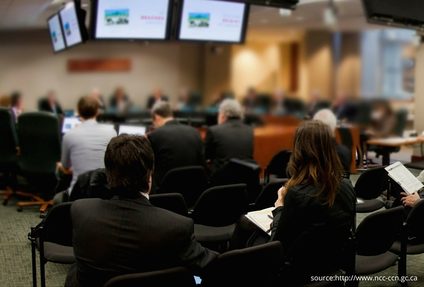
Last week, I got a snapshot of a federal public service that is reinventing itself in real time.
I’d been invited to participate in a panel on consultation and collaboration, a stated goal of how this Federal government expects public servants to work. The session is one in a series, hosted by the Institute on Governance, that enables senior bureaucrats to examine how public servants can respond to the priorities of the new government.
The 90 minutes went by in a blur, as panelists and participants discussed the steps federal officials will have to take to adapt to an avowedly activist government, and what Ottawa stands to gain from a more open, inclusive approach to community dialogue.
No More ‘Policy-Based Evidence-Making
Panelists and participants spoke eloquently, even courageously, about the realities of adapting to a government that expects evidence-based policy-making, in contrast to the tradition of “policy-based evidence-making” that has pervaded Ottawa for well over a decade.
Much of the emphasis was on including a wider range of voices in public policy-making—not only because communities and stakeholders are entitled to take part, but because our research and experience, facts and opinions can contribute to better decisions. From an institutional point of view, it’s far better to get a wider range of views and get the decision right the first time, rather than having to walk it back or spend years trying to defend it in court.
A New Way of Engaging
The discussion reminded me of a statistic that has been making the rounds in Ottawa since the federal election last October: 50% of public servants have been on the job for a decade or less. That means they’ve only ever experienced one style of government, with a rather different set of expectations when it came to public engagement.
Which is not to say that veterans of previous federal governments are much better prepared for a consultative environment in which Indigenous people have a court-protected seat at the table, and charities like Sierra Club Canada Foundation are being asked by the government to provide insights and feedback that can help build positive policy decisions. It’s a new world, as much for public officials as for the communities of interest they serve. Throughout the session, I was struck by participants’ openness to change, and their determination to get it right on one of the most important transformations Ottawa has ever seen.
Level the Playing Field
With a roomful of federal officials in the audience, I took the opportunity to point out the limitations in Prime Minister Trudeau’s mandate letter to Revenue Minister Diane Lebouthillie. While the government clearly and genuinely wants groups like Sierra as consultation partners and advisors, it is not clear that the changes outlined in the letter will go far enough – especially after the new restrictions that have arisen as a result of the previous government.
The mandate letter calls for clarifying the rules governing political activity. Currently, charities are obliged to limit their political work to 10% of their activity. The Canada Revenue Agency’s definition of political activity includes any public efforts to retain, oppose or change a law, policy, or decision of any level of government in Canada or a foreign country to advance the charitable purposes of the organization.
Political activity is not partisan activity, which refers to activities supporting or opposing a particular political party or candidate. Partisan activity is banned and should be. Political activity should be encouraged, not restricted.
The ability of Canadian charities to participate in shaping public policy is vital for a healthy democracy. Charities make an important contribution to society and they must be provided with the space to do so effectively. Charities voice the concerns of millions of Canadians and provide subject matter expertise, which results in better, more effective policies and laws on issues that matter to Canadians.
Businesses and charities both have valuable, legitimate views to contribute to the federal policy process. Businesses have no constraints on their participation, and are free to spend large amounts on advocacy and lobbying, and write it off as a business expense. Canadians deserve a level playing field so that the public good can be properly and fully represented.
End the Politically Motivated Audits
There is also an urgent need for the Minister to clarify federal policy around the politically-motivated audits initiated by the previous government. In 2016, months after the election, there are some two dozen environmental charities still under audit for political activities. Some of these audits have gone on for years and cost hundreds of thousands of dollars, diverting funds that should have been used to support the work of the charity. And, the audits have had and still have a widespread chilling effect on charities across Canada, inhibiting their invaluable work in the name of the public good. These audits need to end immediately. Reform of the rules that allowed these audits must begin now.
Waking Up to a New Day
No one said it would be easy, but still, the panel discussion was one more reminder that it is a new day in Ottawa. Sierra is careful and diligent about working within the current charity rules, but we could be more effective if the rules were changed. We need a new legal and policy direction that enhances and protects the ability of registered charities to participate in public policy debates. Please add your voice. Sign the Protect Canadian Charities Petition.
And GIVE GENEROUSLY to help us continue our work, at the federal level and at the grassroots across the country.
Sincerely,
Diane Beckett
Interim Executive Director
Sierra Club Canada Foundation
One Earth • One Chance
Like us on Facebook.
Find us on Twitter @sierraclubcan.
SCCF's success depends on the support of like-minded individuals and organizations.
